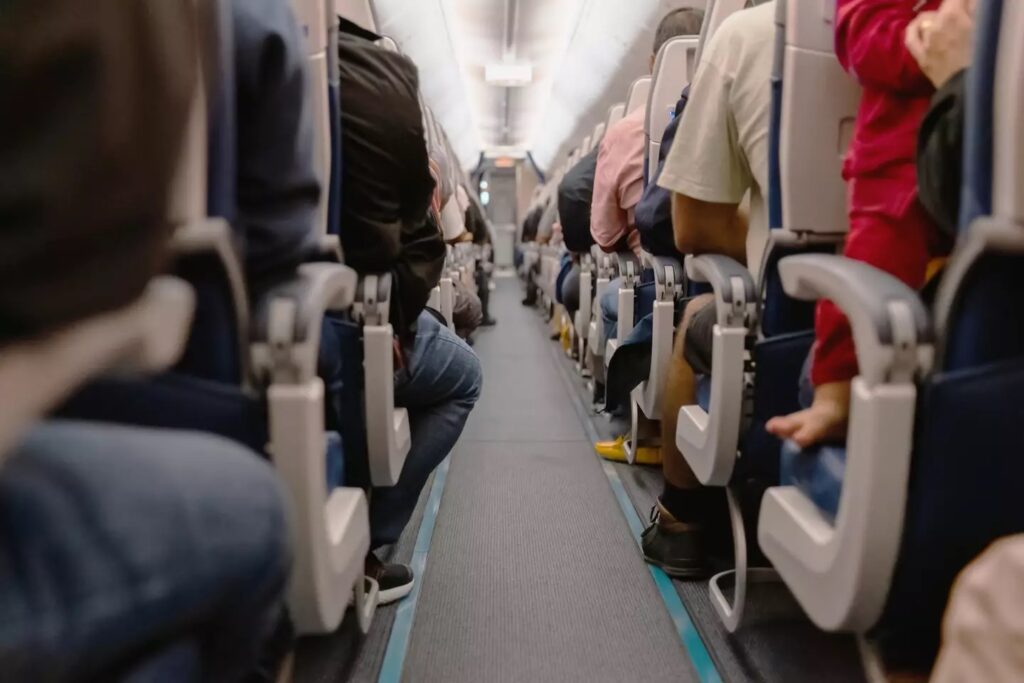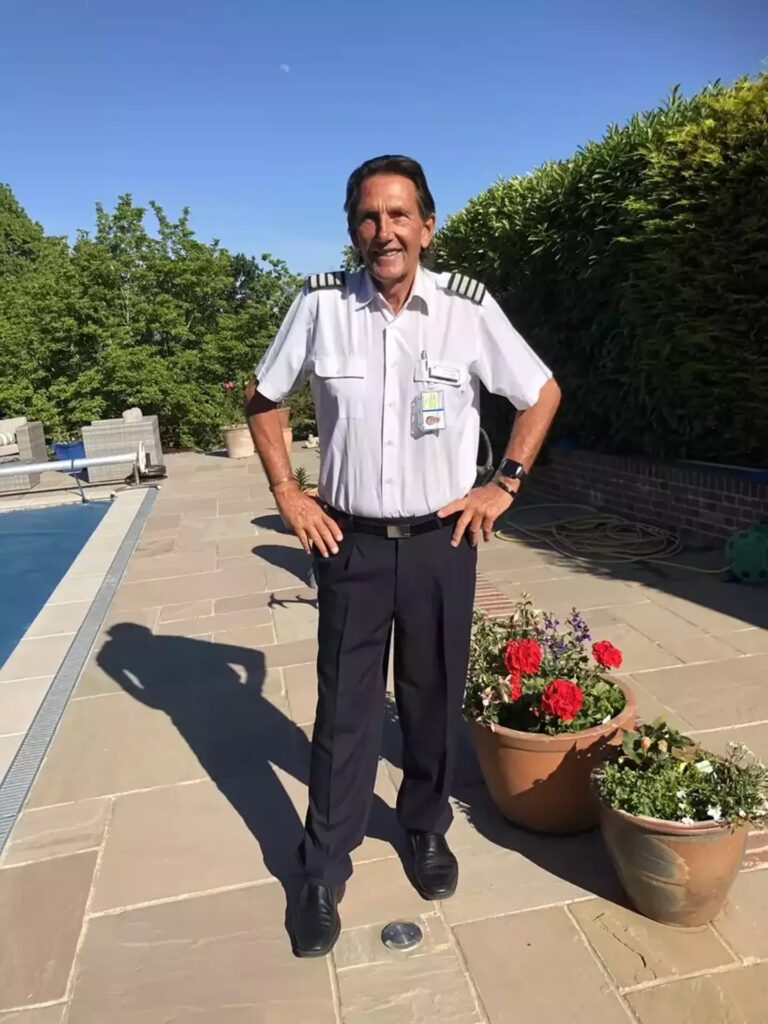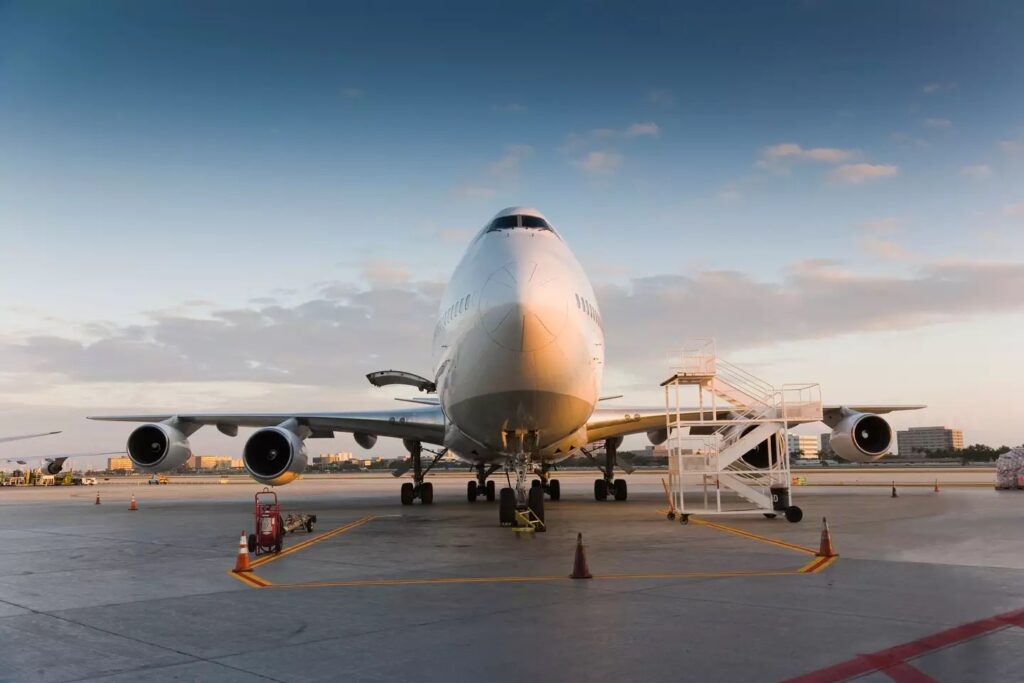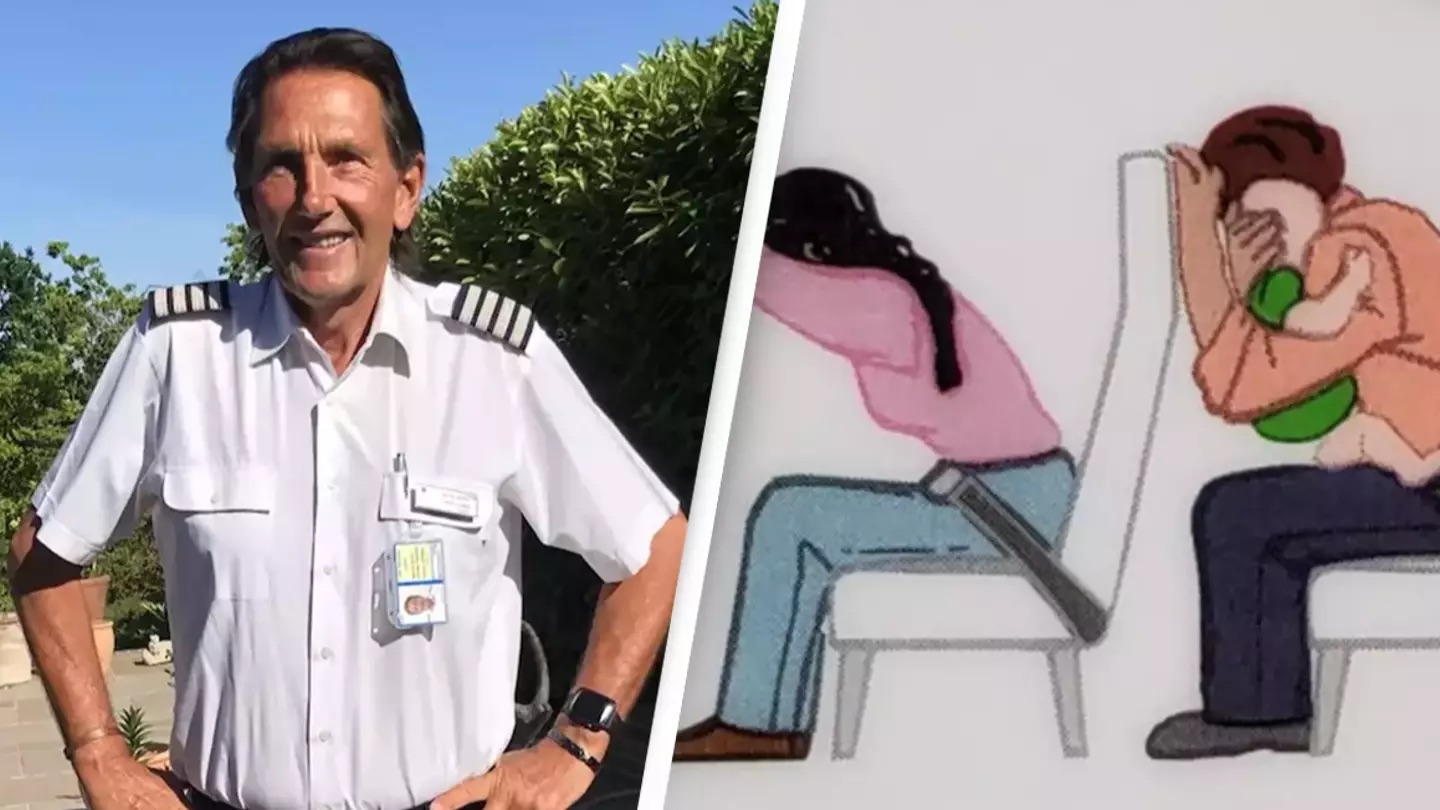An experienced Boeing 747 pilot has addressed a question that many air travelers may have pondered. If you’ve ever flown, you’re likely familiar with the ‘brace’ position from safety briefings, where passengers are instructed to place their hands behind their heads and bend forward with their heads between their knees.
Fortunately, most of us have never encountered a situation that necessitated the brace position. However, frequent flyers are well-acquainted with it from regular safety demonstrations. There has been much speculation and some myths surrounding the rationale behind the brace position, with suggestions ranging from ensuring a quick, painless death to preserving dental records for identification purposes.
Pilot Nick Eades clarifies the real purpose behind the brace position, which does not involve ensuring fatalities or safeguarding teeth. Instead, it is designed to enhance safety during a crash.

Eades explains, “The goal is to prevent people from breaking their necks during a significant impact. The position aims to minimize injury.”
He adds, “It’s similar to whiplash prevention—avoiding the sudden head movement that can lead to serious injuries or even death.” Whiplash occurs when the head is violently thrust forward during a crash, causing severe neck and spinal damage. By tucking your head, you decrease the likelihood of it being forcefully thrown forward during a sudden stop.

Eades mentions that he has had to use the brace command only a few times throughout his extensive career. “I’ve encountered a couple of situations with landing gear issues, where the cabin crew instructed passengers to ‘brace, brace!’” he shared.
The pilot notes that this command is becoming less common, explaining, “Nowadays, I’d estimate that at least half to three-quarters of passengers don’t speak English as their first language.”

He elaborates, “The aviation industry recognized that if you’re suddenly in an emergency and someone yells ‘brace,’ it could be confusing. They are replacing it with ‘heads down, hands over your head,’ which provides clearer instructions during what could be the most stressful moment of someone’s life.”
